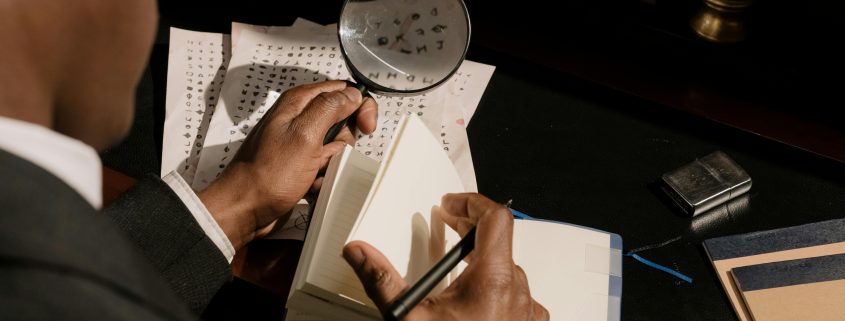How Private Investigators Use Technology to Solve Cases
Gone are the days when private investigators relied solely on intuition, magnifying glasses, and hours of painstaking stakeouts. In today’s digital age, technology has revolutionized the field of private investigation, turning complex cases into solvable puzzles. From finding missing persons to exposing fraud, investigators now have an arsenal of advanced tools at their disposal, each designed to uncover hidden truths efficiently and effectively.
The rise of sophisticated gadgets and software has not only made investigations faster but also significantly more accurate. GPS trackers, high-definition cameras, and digital forensics software are just a few examples of technologies shaping the way private investigators work. Social media and online research have opened doors to unprecedented amounts of information, often revealing leads that traditional methods might miss.
Yet, as technology enhances their capabilities, it also brings challenges—particularly around privacy and ethical boundaries. Private investigators must strike a delicate balance between leveraging technology and respecting the rights of those under investigation.
Technology in Surveillance

Surveillance has always been a cornerstone of private investigation, and modern technology has taken this practice to unprecedented levels. High-definition cameras equipped with night vision and motion sensors allow investigators to monitor targets discreetly, even in low-light conditions. These cameras can be installed in vehicles, homes, or portable devices, ensuring comprehensive coverage without raising suspicion.
Drones have also emerged as a game-changing tool in surveillance. Capable of capturing aerial footage from a safe distance, drones are ideal for observing large areas or difficult-to-reach locations. For instance, an investigator tracking a suspected fraudster might use a drone to monitor activity at a remote property without ever setting foot on the premises.
These advancements not only increase efficiency but also improve the quality of evidence collected. High-resolution video and images can provide indisputable proof in legal proceedings, making surveillance technology indispensable for private investigators.
Digital Forensics
In an era dominated by smartphones and computers, digital forensics has become a critical component of private investigations. This branch of technology involves retrieving and analyzing data from electronic devices to uncover valuable insights.
Private investigators use digital forensics to recover deleted files, track digital footprints, and analyze communication logs. For example, in a case of suspected infidelity, investigators might examine text messages, emails, and social media activity to confirm or dispel suspicions. Similarly, in corporate investigations, digital forensics can uncover evidence of embezzlement or intellectual property theft.
Specialized software enables investigators to crack passwords, retrieve encrypted data, and even pinpoint the location of a device at a specific time. This level of detail can be crucial in cases where every piece of information counts.
GPS Tracking Devices
GPS tracking devices are another powerful tool in the investigator’s toolkit. These devices allow private detectives to monitor a subject’s movements in real-time, providing valuable insights into their activities and routines.
For instance, in cases involving suspected insurance fraud, a GPS tracker placed on a claimant’s vehicle might reveal that they are engaging in activities inconsistent with their reported injuries. Similarly, GPS technology can be used to locate missing persons or monitor the movements of high-value assets.
However, the use of GPS trackers comes with legal and ethical considerations. Investigators must ensure they have proper authorization to deploy these devices, as unauthorized tracking can lead to legal repercussions. By adhering to the law, private investigators can use GPS technology responsibly and effectively.
Social Media and Online Research
The explosion of social media has transformed how private investigators gather information. Platforms like Facebook, Instagram, and LinkedIn offer a treasure trove of publicly available data that can be instrumental in solving cases.
Through social media, investigators can uncover details about a person’s lifestyle, relationships, and whereabouts. For example, a missing person’s recent social media posts might provide clues about their last known location. Similarly, in cases of fraud or identity theft, analyzing online activity can reveal inconsistencies or patterns that point to the perpetrator.
Investigators also use specialized tools to scrape and analyze online data more efficiently. These tools can identify connections, monitor changes to profiles, and even flag suspicious activity, saving valuable time and effort.
Advanced Analytics and Databases

In addition to public records and online research, private investigators may have access to proprietary databases that contain a wealth of information. These databases, some unavailable to the general public, can provide details about a person’s financial history, criminal record, and employment background.
Advanced analytics and artificial intelligence (AI) further enhance these capabilities. By analyzing large volumes of data, AI can identify patterns and connections that might otherwise go unnoticed. For example, AI algorithms can cross-reference phone records, financial transactions, and social media activity to create a comprehensive profile of a subject.
Such tools are particularly valuable in complex cases, where multiple data points need to be correlated to uncover the truth. Whether investigating fraud, locating a missing person, or conducting a background check, advanced analytics provide a significant edge.
Challenges and Ethical Considerations
While technology has undoubtedly enhanced the effectiveness of private investigations, it also raises important ethical and legal questions. The use of surveillance tools, digital forensics, and GPS trackers must comply with privacy laws and regulations to avoid infringing on individuals’ rights.
Private investigators must exercise caution and ensure they have the necessary permissions before accessing sensitive information. For example, retrieving data from a smartphone without the owner’s consent could violate privacy laws, leading to legal consequences for the investigator and their client.
Moreover, the human element remains crucial in investigations. Technology can provide valuable data, but interpreting that data and making sound judgments still require experience and expertise. Balancing technological advancements with ethical responsibility is essential for maintaining the integrity of the profession.
Why Hire Kinsey Investigations?
Technology has revolutionized private investigation, enabling professionals to solve cases more efficiently and accurately than ever before. For those in Los Angeles and beyond, Kinsey Investigations is at the forefront of this technological evolution. As a woman-owned agency, Kinsey Investigations combines cutting-edge tools with a personal touch, ensuring that every client’s case receives the attention it deserves.
From high-tech surveillance and digital forensics to GPS tracking and advanced analytics, Kinsey Investigations offers a comprehensive suite of services designed to uncover the truth. Our experienced team balances the power of technology with a deep understanding of legal and ethical boundaries, delivering results you can trust.
Whether you need help locating a missing person, investigating fraud, or resolving a personal matter, Kinsey Investigations is your trusted partner. Contact us today to learn how our expertise and innovative approach can make a difference in your case.























